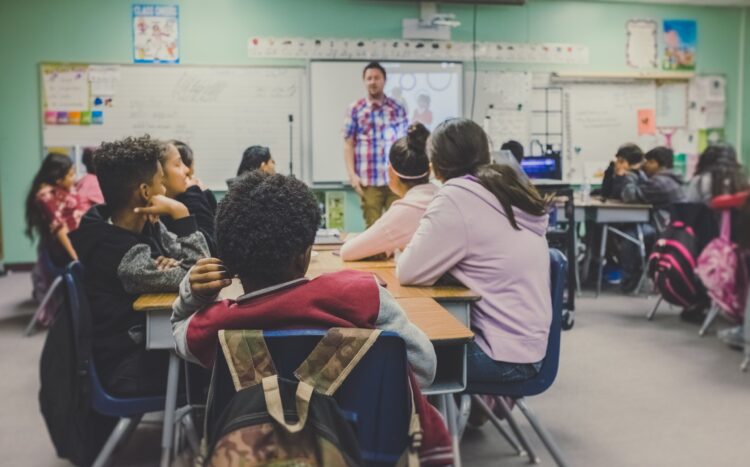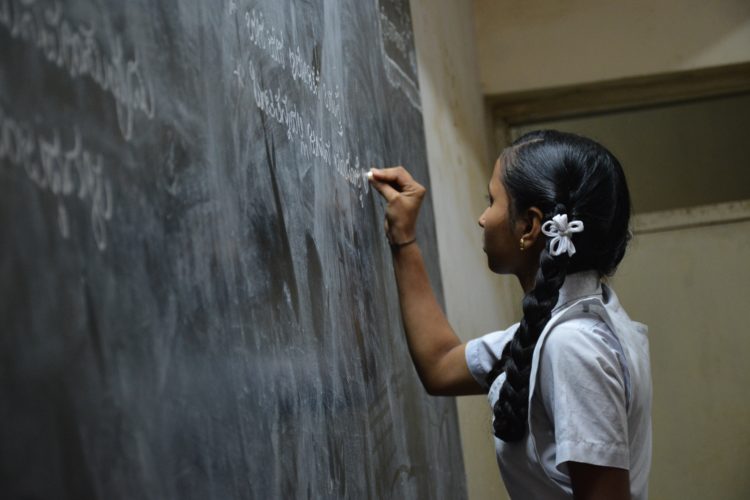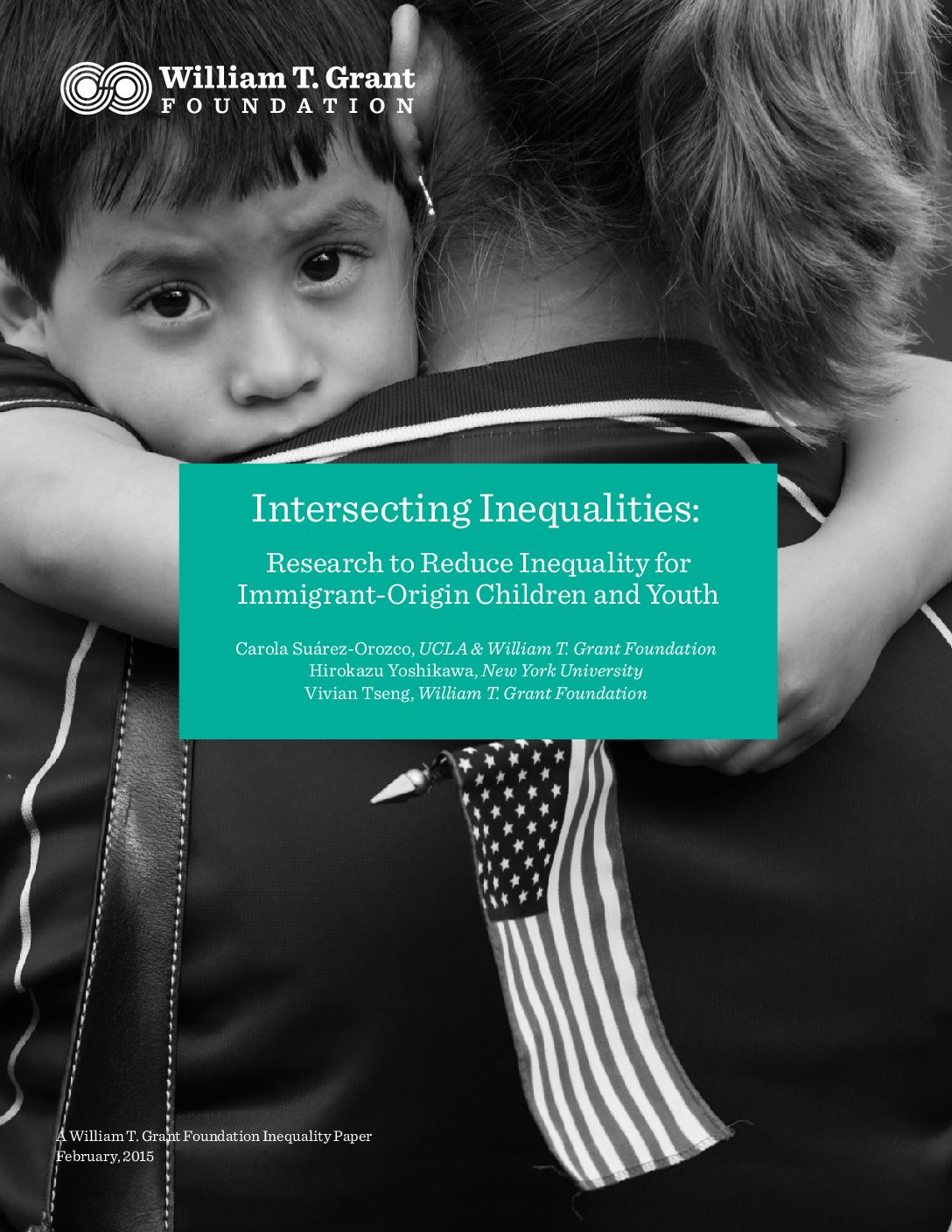In 2018, when we launched our study, Putting Immigration and Education in Conversation Everyday (PIECE), it was a time of crisis for immigrant communities. Anti-immigrant policies, aggressive enforcement, and xenophobic discourse were causing upheaval for students, families, and the educators serving them. As scholars committed to improving the educational experiences of immigrant-origin students, we designed the mixed-methods PIECE study to learn how educators across the country were responding to the crisis.
Of course, our project began in response to a particular moment in history, but we quickly encountered another historical crisis two years later with the onset of the COVID-19 pandemic. Adapting our work to the new challenges facing our district partners, we learned as much about engaging in productive research-practice partnerships through disruption as we did about the research questions we initially set out to explore.
Overview of the Study
In light of the well-documented negative impacts of anti-immigrant policies and discourse surrounding federal policy during the Trump era (Costello, 2016; Ee & Gándara, 2018), educators in various roles have sought new ways to support immigrant students and their communities (Rodriguez, Roth & Sosa, 2020; Lowenhaupt, Dabach, & Mangual, 2021).
Educational institutions are one of the central influences on the lived experiences and outcomes for immigrant-origin youth: They serve as key points of contact for these children and their families, supporting academic and language learning, social integration, and access to social services (Umansky, Hopkins & Dabach, 2020; Portes & Rumbaut, 2014). At the same time, educators are part of and limited by the layered contexts in which they are nested, including institutional, local, state and federal policy influences (Golash-Boza & Valdez, 2018).
How do public school educators interpret and respond to rapidly-changing immigration policies as they develop equitable practices when serving immigrant-origin students?
Our research team investigated the role and practices of educators navigating these nested contexts of reception. Using a longitudinal, mixed-methods approach that drew on educators’ firsthand perspectives, we explored contemporary experiences at the intersection of immigration policy and educational practice. Through our study with educators in six immigrant-serving school districts around the country, we asked the overarching research question: “How do public school educators interpret and respond to rapidly-changing immigration policies as they develop equitable practices when serving immigrant-origin students?”
Building on findings from an online staff survey conducted in 2018, along with qualitative data from site visits in 2019, we designed and led a collaborative convening at Boston College with three district leaders from each of our partner districts, which took place in early March of 2020, just before schools were closed in response to the COVID-19 pandemic. During our convening, we shared preliminary insights from the study, facilitated cross-district conversations by job-alike roles, and established four co-design teams focused on defining and developing promising practices across districts. At the time, we were unaware that our work would not be able to move forward as planned.
Adapting Our Research Plans
Partnering through the pandemic required us to adapt our research activities both from a practical and a personal perspective. We recognized we needed to make changes in order to sustain our collaboration. Our first priority was to center care among our research team and district partners. While we had focused on strong, caring relationships throughout the project, this became a guiding principle and active goal as we developed our new research plan. Building from the strong connections we made during our March convening, we focused on making space for sustaining relationships in our meetings by listening to one another and helping each other hold onto our shared values and commitments in the midst of disruption.
Centering care and ensuring mutual benefit became guiding principles in our decision making about how to adapt the project.
A second priority was to identify how our research activities were and could continue to be mutually beneficial as circumstances changed. As education scholars focused on building knowledge over time, it can be difficult to identify immediate benefits for practitioners who partner with us. Indeed, all too often the demands of research require the energy and expertise of practitioners without any direct or immediate benefit to them. In the case of our project, there were some components of the work that partners viewed this way, while other aspects of the work felt more relevant and useful to them. Together, we identified several pressing issues for which our partners needed immediate support. Centering care and ensuring mutual benefit became guiding principles in our decision making about how to adapt the project.
A New Focus for Partner Activities
We had to shift our plans several times. One key aspect of our pre-pandemic plan had been to engage in regular meetings online with our district partners continuing the work from our in-person convening. While the plan for those meetings had been to facilitate a co-design process for promising practices, we quickly realized we needed to adapt. To our surprise, our partners wanted to continue meeting in the midst of crisis, but their interest in joining those meetings was to seek advice and identify strategies across districts to address the pandemic. In line with the priorities described above, we settled into a routine for our meetings, which turned into facilitated opportunities for us to engage in collaborative reflection, holding space open for our district partners to make sense of the crisis and their efforts to respond.
We took a humanizing approach to our research, prioritizing relationships over the typical efficiencies of work. Practically speaking, this meant that when we came together online, we sought to facilitate professional and personal community. Although we all felt a sense of urgency given pandemic disruptions, we purposefully took our time checking in, grieving our many losses together, and celebrating even the most minor accomplishments by formalizing our practice of “kvelling,” a Yiddish word that captures the idea of sharing success in and for community.
Rethinking our Role as Researchers
Partnering through crisis changed our roles as researchers. We offered up the tools of research, including our skills at facilitating meetings, bringing our knowledge of the field into the conversation to help our partners make sense of their rapidly changing circumstances, and document and share emergent strategies being developed across contexts. In this way, we became more directly engaged than initially intended and worked collaboratively to identify responses to crisis.
We maintained our research goals but sought alternate approaches to pursue them, and added a research question related to pandemic response. We established a loose structure for our data collection, at the same time that we built in flexibility, understanding that the rapid pace of change meant that we needed to prepare to shift gears at any given point.
We became more directly engaged than initially intended and worked collaboratively to identify responses to crisis.
Importantly, this was an ongoing conversation because, of course, district partners’ perspectives changed as their circumstances changed. For example, administering an all-staff survey was something that initially provided our partners concrete, usable evidence to use in conversations with staff. However, in coping with pandemic disruptions, they no longer felt this was a priority and worried about the burdens of subsequent survey administrations on their staff. Our initial plans to conduct site visits were postponed, but district partners agreed it would be helpful to interview educators in their districts, so we went ahead with online interviews. By adjusting our plans, we were able to amplify aspects of the project that were most beneficial to our partners given the pressing challenges they faced.
Our primary mode of data collection was documenting our collaboration along the way, taking notes and archiving materials generated during our online meetings. When it seemed appropriate, we recorded our meetings. We also worked with district partners to identify practical measures that were easily collected and which felt more relevant in crisis. Ongoing documentation allowed us to facilitate meetings in a responsive way, and we did our best to help address immediate concerns with some form of evidence our team helped provide.
Conclusions
As a field, we continue to move toward more embedded engagement with the day-to-day realities of our partners. While the priorities of the research community may not always align with the pressing needs of our partners, we have continued to develop methods to engage directly with practitioners in the field. As with all collaborations, we need to approach our work with an ethic of care and a perspective of understanding, centering our shared commitment to reduce inequality and support our most marginalized communities. Unfortunately, the world in which we live will continue to face disruptions. Whether it be climate related disasters, new pandemics, demographic shifts or political unrest, the fluctuating context of schooling requires flexibility and responsiveness in all our partnerships.
REFERENCES:
Ee, J. & Gándara, P. (2020). The impact of immigration enforcement on the nation’s schools. American Educational Research Journal, 57(2) 840-871.
Golash-Boza, T. & Valdez, Z. (2018). Nested contexts of reception: Undocumented students at the University of California, Central. Sociological Perspectives, 61(4), 535-552.
Lowenhaupt, R., Dabach, D. B., & Mangual Figueroa, A. (2021). Safety and belonging in immigrant-serving districts: Domains of educator practice in a charged political landscape. AERA Open, 7, 23328584211040084.
Portes, A. & Rumbaut, R. (2014). Immigrant America: A portrait, updated, and expanded. University of California Press.
Rodriguez, S., Roth, B., & Sosa, L. (2020). School social workers as nepantleras in equity work for immigrant students: A conceptual exploration. Social Service Review, 94(4), 748-780.
Umansky, I. M., Hopkins, M., & Dabach, D. B. (2020). Ideals and realities: An examination of the factors shaping newcomer programming in six US school districts. Leadership and Policy in Schools, 19(1), 36-59.






